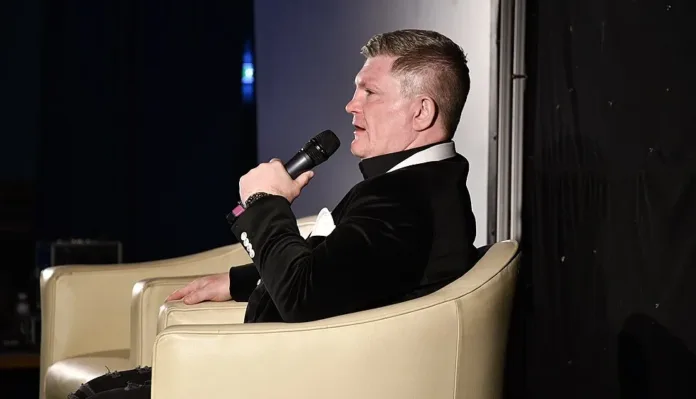Ricky Hatton, 46, was found dead at his Greater Manchester home, inquest suggests suicide
Former world boxing champion Ricky Hatton was found dead at his home in Greater Manchester after it is believed he had taken his own life, an inquest has heard.
The 46-year-old sporting legend — affectionately known as “The Hitman” — was discovered unresponsive at his home in Hyde on the morning of Sunday, 14 September, by his long-time manager and friend, Paul Speak.
The details emerged during a short hearing at Stockport Coroner’s Court on Thursday, where Alison Mutch, senior coroner for Manchester South, formally opened and adjourned the inquest until 20 March 2026.
Police coroner’s officer Alison Catlow told the court that Hatton was last seen by his family on 12 September and had appeared “well”. The following day, he failed to attend a scheduled event, prompting concern. On the morning of 14 September, Mr Speak arrived at his home to collect him for a flight to Dubai — but found the former champion “unresponsive”.
No family members were present at the inquest, but Ms Mutch confirmed that Mr Speak was attending on their behalf.
Embed from Getty Images
News of Hatton’s death sent shockwaves across the sporting world and beyond. Known for his humble personality and fierce determination in the ring, Hatton was one of Britain’s most beloved fighters, adored by fans and respected by peers.
A proud Mancunian and lifelong Manchester City supporter, Hatton’s death was met with tributes from across boxing and the wider sporting community. Many called him a “People’s Champion” — a fighter who remained grounded despite global fame.
His family said they were “heartbroken” but remembered him as a doting father and grandfather who had been “in a good place” in the months leading up to his death. They revealed that he had been preparing for a comeback fight in Dubai scheduled for December and had already packed his bags for the trip.
Hatton’s son, Campbell Hatton, himself a professional boxer, spoke emotionally in an interview with ITV, saying his father’s death had “knocked us for six.”
Thousands of mourners lined the streets of Manchester for Hatton’s funeral, which saw emotional tributes from fans, fighters, and celebrities alike. Among those attending his memorial service at Manchester Cathedral were Liam Gallagher, Wayne and Coleen Rooney, and boxers Tyson and Tommy Fury.
Hatton’s death has reignited an urgent discussion about the mental health of athletes after retirement. The former champion had spoken openly in the past about his struggles with depression, alcohol, and drug abuse — and his previous suicide attempts following his 2012 retirement.
In interviews, Hatton had described how life outside the ring left him feeling “empty,” despite his success and adoration. “When the lights go out, you’re forgotten about,” he said in one candid documentary.
Promoter Barry Hearn said Hatton’s death must serve as a wake-up call for sports bodies and the government to do more for retired athletes. “We all need to help in our own small way,” he said. “Too many sporting heroes fall through the cracks when the spotlight fades.”
Born in Stockport in 1978, Ricky Hatton rose from humble beginnings to become one of Britain’s greatest boxers. Known for his relentless style and crowd-pleasing fights, he won multiple world titles at light-welterweight and welterweight.
His most famous bouts included victories over Kostya Tszyu and José Luis Castillo, as well as high-profile fights against Floyd Mayweather Jr. and Manny Pacquiao. At the peak of his career, he drew tens of thousands of fans to Las Vegas — many of whom travelled from Manchester to see their hometown hero in action.
Hatton retired in 2012 after an ill-fated comeback bout but remained active in the sport as a trainer, mentor, and promoter. His fighting spirit, humour, and honesty made him one of boxing’s most relatable figures.
The inquest into his death will resume in March 2026, when further details surrounding his final days are expected to be revealed.
For now, Britain mourns a champion who fought both in the ring and in life — and whose passing leaves a void that will be felt across generations of boxing fans.
